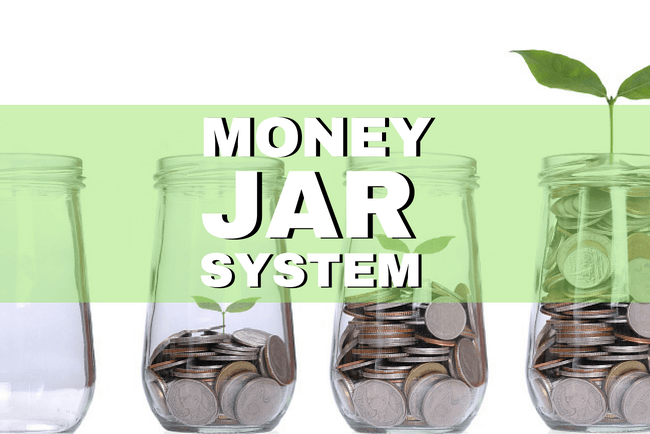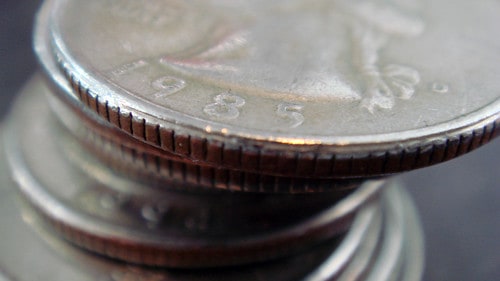Recession-Proofing Your Life Insurance
This article was written by Joe Taylor Jr. Taylor is an internal business consultant for a Fortune 500 company, who also writes about finance, culture, and design. He holds a Bachelor of Science in Communications from Ithaca College.
I remember an evening a few years ago, when the company I helped start had to close its doors. I'd sunk my entire savings into building a business that had thrived. As soon as bombs started falling on Baghdad in 2003, however, my largest client cancelled its contract and two other big customers totally shut down. Of course, my creditors didn't care about the reasons I hadn't been receiving payments on invoices we'd sent. They just wanted to get paid themselves.
My wife and I ran down the list of changes we'd have to make: downsize to a smaller home, cut the cord on cable television, maybe even cancel my life insurance policy. While we had to cut plenty of budget items to the bone, I kept scraping together a few bucks every week to keep paying that term life policy. After all, I joked at the time, it meant that I was at least worth more dead than alive.
Learning to budget with a money jar system


This article was written by Steve Martile, a life coach and the author of the personal-growth blog Freedom Education. Here he describes a money jar system for budgeting that actually reminds me of Elizabeth Warren's balanced money formula, but with a little more detail.
Managing money doesn't restrict freedom — it creates freedom. Continue reading...
Why do you want to be rich?
I'm not the only one who has been thinking about the relationship between money and meaning lately. This article was written by CJ at WiseMoneyMatters.com, who is trying to live a rich life even as he works to pay down debt.
I love this quote from Dr. Edwin Louis Cole because it gives me a heart check. It helps me understand my motives for doing what I'm doing.
You see, my goals are to become completely debt-free. I'm getting closer and closer to that goal. Within the last few months, I downsized my house, doubled my income, and was able to pay off all of my debts except for the mortgage. So now all I have left is about $100,000 to pay off before I am completely debt-free.
<An introduction to life insurance
Many of you have asked for life insurance information, so Ray from Financial Highway offered to provide this article on the subject. This is new info for me, too.
 Protecting your family from financial disasters is one of the fundamental components of financial planning. Life insurance should be a core part of that planning process. This article is a basic primer on life insurance, which should introduce you to the concept and give you an idea of how life insurance works.
Protecting your family from financial disasters is one of the fundamental components of financial planning. Life insurance should be a core part of that planning process. This article is a basic primer on life insurance, which should introduce you to the concept and give you an idea of how life insurance works.
What is Life Insurance?
Most people have a basic understanding of insurance. You receive financial compensation when an insured event occurs. Consider auto insurance, for example. If your car is in an accident or stolen, your insurance company provides compensation according to the terms outlined in your insurance policy.
Saving money and the environment: Where green and frugal meet
This is an article for Earth Day from Beth H., who writes about saving time, money, and the environment at Smart Family Tips.

The good news: At its most fundamental, being "green" is nothing new. It's actually built around a very old philosophy of consuming less, buying only what you need, using things until they're worn out, and wasting not. Unsurprisingly, frugality and green-living are closely tied. You don't have to buy expensive "green" products in order to be environmentally friendly. The real goal is to mind your consumption, and that's good for your wallet and the planet. Continue reading...
The per-diem system: An easy way to budget your spending money
This article was written by Spencer, a GRS reader in New York.
As a guy who just finished paying off $14,000 in credit card debt, I wanted to share one tip that helped me get over the bad debt hump. I allocate my spending money on a per diem system. At the beginning of each cycle of my monthly budget, I set aside funds for:
- Every fixed expense that I have (rent, cable/internet, groceries, power)
- Any unique expenses (a plane ticket, for example)
- And, of course, my savings (about 8 percent of my after-tax, after-401k income)

Investing 101: An introduction to asset allocation
This article was written by ABCs of Investing, a new site for novice investors. ABCs of Investing offers one short and simple investing post each week. Understanding asset allocation is a key piece of financial literacy.

One of the keys to investing is deciding your asset allocation. "But what is asset allocation?" you ask. Asset allocation is the relative amount of each asset class in your portfolio, and it determines how much risk your portfolio has. Still confused? Let's take a closer look.
Why you shouldn’t keep a mortgage just for the tax deduction
This article was written by CJ at WiseMoneyMatters.com. This post represents CJ's viewpoints, which are not necessarily my viewpoints. (Although I, too, hope to pay off my mortgage early.)
 The other day, I was telling my wife's grandmother that we had sold our house. We are downsizing in order to eliminate our mortgage more quickly. It looks like we will have our mortgage completely paid off in three to five years, depending on when kids enter the scene. She gave me a speech about how our house is one of the only tax deductions we have, and how most accountants recommend you keep a mortgage payment for that reason.
The other day, I was telling my wife's grandmother that we had sold our house. We are downsizing in order to eliminate our mortgage more quickly. It looks like we will have our mortgage completely paid off in three to five years, depending on when kids enter the scene. She gave me a speech about how our house is one of the only tax deductions we have, and how most accountants recommend you keep a mortgage payment for that reason.
I think this logic is misguided. Let me show you why.
Why I drive a 13-year-old car
This article was written by Joel Berry.
I recently had a talk with a friend about why I haven't purchased a new car. He can't understand why I still drive a 1995 Geo Prizm. I can afford to buy a new car, but I choose not to. The fact is, driving an older car saves me money!
To prove my point, I ran some numbers. I was surprised by how much money I've saved by driving this car for so long.
What’s your why? The importance of finding meaning in your life
J.D. is on vacation. This article was written by Jeremy Martin.
You've heard the phrase, "A bird in the hand is worth two in the bush.” I've often wondered about that — should we really settle for half the return just to have a sure thing right now? It could be argued, and convincingly, that our love of immediate gratification is why so many people have so much debt now.
Of course, what are those “two birds”, so elusive off in the bush compared to something concrete in your hand now? How do you know you'll get them? In other words, as you're looking at that new LCD HDTV, what is competing for your money in your head? Without a solid goal, a vision of the future, there is no reason not to buy that latest toy with your credit card. What else are you going to use the money for?
Become A Money Boss And Join 15,000 Others
Subscribe to the GRS Insider (FREE) and we’ll give you a copy of the Money Boss Manifesto (also FREE)

